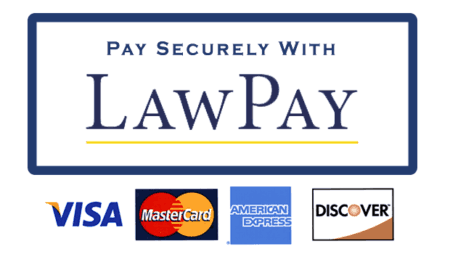Going through the process of a child custody case is filled with emotions – and often many questions. Legal assistance is necessary when determining how children will be parented after a separation or divorce, and one of the main questions many people are concerned about is who pays attorney fees in child custody cases.
In this comprehensive guide, we will discuss the financial aspects of legal representation in child custody disputes. We will answer common questions, such as
“How much does a custody case cost?” and
“Who pays court costs and attorney fees in child custody cases?”
We will also cover the responsibilities of the involved parties in child custody cases, ensuring parents understand the courts’ expectations and their legal processes.
Table of Contents
Breaking Down Attorney Fees: What Is Included?
Attorneys have varying types of fees in child custody cases in alignment with differing actions and responsibilities. Each step of the legal process has its corresponding fees.
Consultation fees can occur early in the case, where the attorney will thoroughly assess the parent’s rights, options, and potential outcomes to the child custody case.
Attorney fees usually also include a retainer for the attorney to perform the work on the case. It may be considered a “down payment” on the case, but that depends on the attorney and the retainer agreement itself.
Attorneys also charge hourly rates for their work, which includes a wide range of activities from meeting with clients, developing strategy for the case, composing petitions, briefs, and motions for the courts, communications, paralegal activities, mediation activities, and presenting the case in court, among other necessary efforts associated with the case.
Who Pays Court Costs and Attorney Fees in Child Custody Cases?
The allocation of court-associated expenses and attorney fees will depend on the particulars of the case.
In many child custody cases, these expenses and fees are paid by each party. However, that is not always the case.

Under section 61.16 of the Florida Statutes or section 742.045 of the Florida Statutes, the courts can award attorney’s fees and court costs in family law cases. If two parties in a child custody case are in unequal financial positions, the court may award one party to pay the costs and fees on behalf of the other. The purpose of this is to ensure that each party has equal access to quality legal representation.
If one parent violates a court order or judgment, such as failing to comply with rules regarding discovery and disclosure during the case, they could be compelled by the court to pay court costs and attorney fees of the other parent, as well as other potential penalties due to the court.
Another example of a violation would be if a party refuses to comply with a child custody or timesharing order.
By the same token, if a parent is found to violate a court order or judgment, they may not be awarded court costs or attorney fees.
Court costs in bringing or opposing a lawsuit are typically awarded to the prevailing party in a family law case, including child custody cases.
Distinguishing Between Attorney Fees and Court Costs
When considering who pays attorney fees in child custody cases, it is crucial to know the differences between them and court-related expenses.
While an attorney will charge for their time and effort with the case, which includes work with the courts, the courts have their own costs in processing and adjudicating a child custody case.
Court costs typically include filing fees for briefs, motions, and any other necessary documents submitted to the court. There are also, in many cases, expenses incurred in relation to the depositions of involved parties, as well as other witnesses, including any expert witnesses if needed in the case.
Additionally, court-related expenses may include court reporter and recording fees, costs associated with mediation, and service of process fees. Any other expenses related to the case incurred by the Clerk of Courts would be included in court costs.
Potential Repercussions for Non-payment
Attorney fees and court costs must be paid in child custody cases. If not, some consequences might arise if these expenses remain unpaid. Legal action could occur, including lawsuits and the court finding you in contempt. If the court finds you in contempt, this can lead to additional expenses in the form of fines and potential legal consequences.
The outcome of your case could also be affected, so it is always crucial to pay the expenses in a child custody case.
How Much Does a Custody Case Cost?
The cost of a custody case will vary widely depending on the particulars of the case and the attorney you hire. It can range anywhere from $2,000 up to about $30,000.
The length of the case, whether the two parties can reach an agreement, and whether the case goes to trial are some primary factors that affect the cost. When cases are longer in duration, very complex and contentious, and go to trial, the costs are higher on the financial spectrum. The costs are lower when cases are shorter, less complex, and contentious and can be resolved before trial, which applies to paternity cases, dissolution of marriage with child custody issues, and other family law cases.
Factors Influencing the Cost of a Custody Case
Other factors can also influence the overall cost of a custody case.
Geographic location is one that some may not be aware of when considering costs. In certain areas, attorney fees may be lower than others. County courts determine their costs and may be different than others. The petitioner (the person filing the case for child custody) must file in their county. Attorney expertise can also be a factor. New attorneys in the field of family law may have lower rates but less expertise.
Other factors can include the amount and length of mediation needed, an evaluation by a child psychologist, and the necessity of a Guardian Ad Litem.
The intricacies of the case will matter as well. If paternity needs to be proven or domestic or child abuse is present and needs to be proven, this can lengthen the case. The willingness to comply with the process matters, too. Unwillingness can cause delays.
Other intricacies may include challenges with locating one of the parties, complex financial issues related to divorce, or other factors that may lengthen and complicate the case, which can increase the cost.
Can You Sue for Legal Fees in Family Court?
The court’s position is one of concern for the welfare of minor children. In this context, this means they want each party to have similar legal representation. So, yes, you can sue for legal fees in family court in certain circumstances. Here are examples of possible situations:

- When one party’s financial resources are greater than the other, this includes income and assets.
- When one party is harassing the other party and/or intentionally stalling the proceedings, subsequently increasing legal fees.
- When one party violates timesharing agreements ordered by the court.
In the pursuit of fairness and justice, the court may decide to award the other party legal fees. These fees can be in the form of temporary fees (during the proceedings) and/or final fees (awarded at the conclusion of the proceedings).
Precedents and Criteria for Reimbursement
Florida Statutes provide the legal authority to award a party reasonable legal fees in a lawsuit in family court. For the court to consider an award, the party seeking reimbursement must request it at the beginning of the proceedings an must be included in the initial petition filed with the court.
Florida Statute 61.16 allows for the award when one party has the greater need, and the other party can pay in a dissolution of marriage or a pos-dissolution of marriage case.
The court will need to see that there is an actual need for the award. Situations that could be demonstrable include that the party seeking reimbursement could not hire competent counsel without using marital assets or alimony and without using income used for basic living expenses, such as food, clothing, and shelter.
Similar to 61.16, Florida Statute 742.045 authorizes payment for attorneys’ fees based on the need and ability to pay in paternity cases. The same financial criteria would be applied to receive the reimbursement.
Additionally, Florida Statute 57.105 authorizes the awarding of attorney fees by the losing party due to improper pleadings. The criteria for this include the claim or defense (pleading) when presented to the court or at any time before trial:
- Was not supported by the material facts necessary to establish the claim or defense; or
- It would not be supported by the application of then-existing law to those material facts.
These precedents and criteria for reimbursement of legal fees are in place to put the concern of minor children at the forefront and to pursue fairness and justice in child custody cases. The intention of the courts is not to have financial barriers stand in the way of what is best for minor children in the long term.
How Much Do Custody Modifications Cost?
Certain processes need to occur if you have an existing custody agreement and are seeking to modify it.
In order to change the Parenting Plan and Parental Responsibility agreement, an application (pleading) to the court must be made, proving there is a “substantial and material change in circumstances.” Substantial changes can include, but are not limited to:
- Child abuse or neglect has occurred.
- A parent has developed a substance abuse problem.
- A parent is unable to continue the current timesharing schedule.
- A child is struggling with a mental health issue or is having difficulty in school because of the other parent.
The pleading should show how the substantial change in circumstances has significantly impacted the child and how modifying the Parenting Plan and Parental Responsibility agreement would benefit the child.
So, how much does a custody modification cost?
Similar to original child custody cases, the cost of a modification proceeding can vary greatly, depending on the modifications’ complexity and the case’s duration.
Where to Find Legal Assistance
A child custody attorney leads as a legal expert through the discovery process and each step of the way. Due to the complexity and critical significance of family law cases, working with an attorney in child custody cases is extremely important.
Parents can significantly benefit from legal assistance. Working with an attorney can help to secure favorable outcomes.
Golden Key Law Group has extensive experience in child custody cases. Contact us today.










